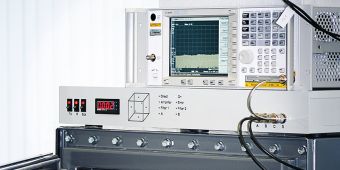The relevance of testable devices

Before the market approval process for a device with radio technologies can be started, the approval tests must be carried out. The type and scope of the tests depend strongly on the technologies used and the requirements of the respective approval regime.
The point in time at which the approval process can start therefore depends to a large extent on successfully performed tests on the devices to be approved. The faster the tests can be completed, the faster the approval process can start and the faster the product will receive the necessary market approval.
To ensure that the relevant tests can be carried out quickly, without problems and above all without delay, it is necessary for the manufacturer to provide testable devices that can be tested. Only with this type of test item is it possible to carry out the necessary tests. Since there is always a need for coordination in this context, we would like to explain some of the relevant questions relating to the subject of “testable test items”.
What does a “testable device” mean?
A testable device under test implies that the test modes required tests must be implemented and available in the device provided by the manufacturer.
- Example: For WLAN and Bluetooth measurements, Power measurements or Radiated Spurious Emission tests must provide a test mode that generates a continuous carrier signal (CW mode). Settings such as channel change, modulation and bandwidth must also be adjustable.
What should the manufacturer pay attention to with the device under test?
The manufacturer must pay particular attention to the software provision of the DUTs and should provide a description for fast and correct commissioning and activation of the test modes. However, points must also be taken into account when providing the DUTs on the hardware side.
- For example, wired DUTs must also be provided for power measurements, and the timely provision of additional equipment and remote stations must also be ensured.
What are the consequences if the DUTs are not provided complete or functional?
If the devices under test cannot be brought into the necessary test modes, the start of the relevant tests is consequently delayed and booked laboratory times must be postponed.
- These delays would in turn have consequences for the timing of the certification process, as test reports cannot be provided within the planned timeframe due to the delays.
- In addition, additional costs may arise due to additional laboratory work.
How do we support the customer in this process?
As CETECOM, we offer our customers consulting already during the project planning process. In this way any queries or challenges can be clarified in advance. But we also support our customers during the test phase in order to ensure that the tests run smoothly. This support includes, among other things, independently performed software updates or the analysis of log files.
In order to enable our customers to start the test process as quickly as possible, we have established a team to prepare the test devices, which works together with our customers on the testability of the test specimens before the start of the project.
If you require additional information, please do not hesitate to contact us: https://cetecomadvanced.com/en/contact/.







